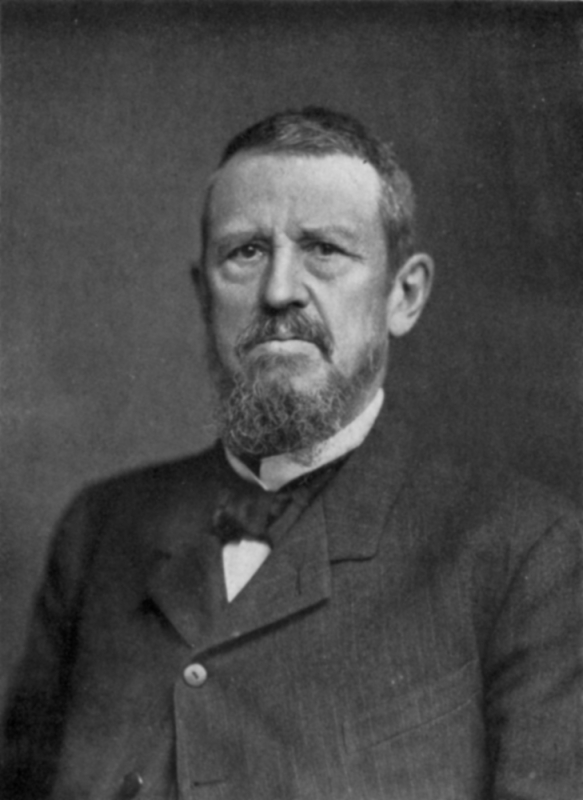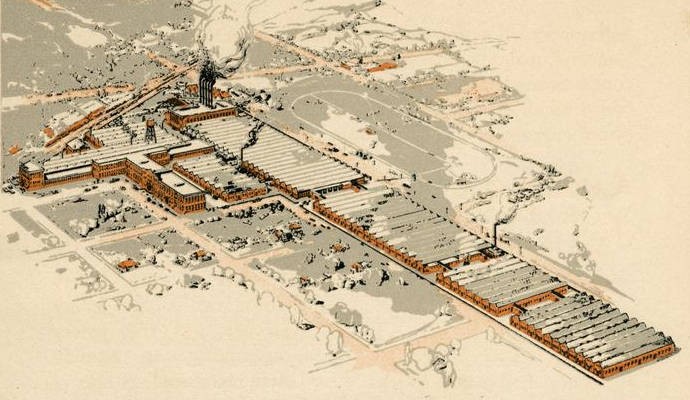|
International Motor Vehicle Program
The Program on Vehicle and Mobility Innovation (PVMI) is the oldest and largest international research consortium aimed at analyzing the global automotive industry. History PVMI, founded as the International Motor Vehicle Program (IMVP) at the Massachusetts Institute of Technology in 1979, has mapped lean methodologies, established benchmarking standards, and probed the automotive value chain. The program's data-driven methods set the standard for industry research. In 2013, program was restructured and renamed as part of its incorporation into the Mack Institute for Innovation Management at the Wharton School. PVMI/IMVP has had a major impact on the global automobile industry and the economy that surrounds it since it was launched in 1979. More than 50 senior scientists, management experts, social scientists, and engineers have conducted interdisciplinary automotive research at more than 25 universities on six continents. The program has gone through several phases since its ... [...More Info...] [...Related Items...] OR: [Wikipedia] [Google] [Baidu] |
Massachusetts Institute Of Technology
The Massachusetts Institute of Technology (MIT) is a Private university, private Land-grant university, land-grant research university in Cambridge, Massachusetts. Established in 1861, MIT has played a key role in the development of modern technology and science, and is one of the most prestigious and highly ranked academic institutions in the world. Founded in response to the increasing Technological and industrial history of the United States, industrialization of the United States, MIT adopted a European History of European universities, polytechnic university model and stressed laboratory instruction in applied science and engineering. MIT is one of three private land grant universities in the United States, the others being Cornell University and Tuskegee University. The institute has an Campus of the Massachusetts Institute of Technology, urban campus that extends more than a mile (1.6 km) alongside the Charles River, and encompasses a number of major off-campus fa ... [...More Info...] [...Related Items...] OR: [Wikipedia] [Google] [Baidu] |
Benchmarking
Benchmarking is the practice of comparing business processes and performance metrics to industry bests and best practices from other companies. Dimensions typically measured are quality, time and cost. Benchmarking is used to measure performance using a specific indicator (cost per unit of measure, productivity per unit of measure, cycle time of x per unit of measure or defects per unit of measure) resulting in a metric of performance that is then compared to others. Also referred to as "best practice benchmarking" or "process benchmarking", this process is used in management in which organizations evaluate various aspects of their processes in relation to best-practice companies' processes, usually within a peer group defined for the purposes of comparison. This then allows organizations to develop plans on how to make improvements or adapt specific best practices, usually with the aim of increasing some aspect of performance. Benchmarking may be a one-off event, but is ofte ... [...More Info...] [...Related Items...] OR: [Wikipedia] [Google] [Baidu] |
The Wharton School
The Wharton School of the University of Pennsylvania ( ; also known as Wharton Business School, the Wharton School, Penn Wharton, and Wharton) is the business school of the University of Pennsylvania, a private Ivy League research university in Philadelphia. Generally considered to be one of the most prestigious business schools in the world, the Wharton School is the world's oldest collegiate business school, having been established in 1881 through a donation from Joseph Wharton. The Wharton School awards the Bachelor of Science with a school-specific economics major, with concentrations in over 18 disciplines in Wharton's academic departments. The degree is a general business degree focused on core business skills. At the graduate level, the Master of Business Administration (MBA) program can be pursued standalone or offers dual studies leading to a joint degree from other schools (e.g., law, engineering, government). Similarly, in addition to its tracks in accounting, financ ... [...More Info...] [...Related Items...] OR: [Wikipedia] [Google] [Baidu] |
Automobile Industry
The automotive industry comprises a wide range of companies and organizations involved in the design, development, manufacturing, marketing, and selling of motor vehicles. It is one of the world's largest industries by revenue (from 16 % such as in France up to 40 % to countries like Slovakia). It is also the industry with the highest spending on research & development per firm. The word ''automotive'' comes from the Greek ''autos'' (self), and Latin ''motivus'' (of motion), referring to any form of self-powered vehicle. This term, as proposed by Elmer Sperry (1860-1930), first came into use with reference to automobiles in 1898. History The automotive industry began in the 1860s with hundreds of manufacturers that pioneered the horseless carriage. For many decades, the United States led the world in total automobile production. In 1929, before the Great Depression, the world had 32,028,500 automobiles in use, and the U.S. automobile industry produced over 90% ... [...More Info...] [...Related Items...] OR: [Wikipedia] [Google] [Baidu] |
Interdisciplinary
Interdisciplinarity or interdisciplinary studies involves the combination of multiple academic disciplines into one activity (e.g., a research project). It draws knowledge from several other fields like sociology, anthropology, psychology, economics, etc. It is about creating something by thinking across boundaries. It is related to an ''interdiscipline'' or an ''interdisciplinary field,'' which is an organizational unit that crosses traditional boundaries between Outline of academic disciplines, academic disciplines or School of thought, schools of thought, as new needs and professions emerge. Large engineering teams are usually interdisciplinary, as a power station or mobile phone or other project requires the melding of several specialties. However, the term "interdisciplinary" is sometimes confined to academic settings. The term ''interdisciplinary'' is applied within education and training pedagogies to describe studies that use methods and insights of several establishe ... [...More Info...] [...Related Items...] OR: [Wikipedia] [Google] [Baidu] |
Lean Production
Lean manufacturing is a production method aimed primarily at reducing times within the production system as well as response times from suppliers and to customers. It is closely related to another concept called just-in-time manufacturing (JIT manufacturing in short). Just-in-time manufacturing tries to match production to demand by only supplying goods which have been ordered and focuses on efficiency, productivity (with a commitment to continuous improvement) and reduction of "wastes" for the producer and supplier of goods. Lean manufacturing adopts the just-in-time approach and additionally focuses on reducing cycle, flow and throughput times by further eliminating activities which do not add any value for the customer. Lean manufacturing also involves people who work outside of the manufacturing process, such as in marketing and customer service. Lean manufacturing is particularly related to the operational model implemented in the post-war 1950s and 1960s by the J ... [...More Info...] [...Related Items...] OR: [Wikipedia] [Google] [Baidu] |
The Machine That Changed The World (book)
''The Machine That Changed the World'' is a 1990 book about automobile production, written by James P. Womack, Daniel T. Jones, and Daniel Roos. This book made the term lean production known worldwide. A revised edition was published in 2007. See also *Lean manufacturing *Automotive engineering Automotive engineering, along with aerospace engineering and naval architecture, is a branch of vehicle engineering, incorporating elements of mechanical, electrical, electronic, software, and safety engineering as applied to the design, manufac ... Bibliography *Roos, Daniel; Womack, James P.; Jones, Daniel T.: ''The Machine That Changed the World: The Story of Lean Production'', Harper Perennial (November 1990), , Automotive engineering Lean manufacturing {{engineering-book-stub ... [...More Info...] [...Related Items...] OR: [Wikipedia] [Google] [Baidu] |
Good Judgment Project
The Good Judgment Project (GJP) is an organization dedicated to "harnessing the wisdom of the crowd to forecast world events". It was co-created by Philip E. Tetlock (author of '' Superforecasting'' and ''Expert Political Judgment''), decision scientist Barbara Mellers, and Don Moore, all professors at the University of Pennsylvania. The project began as a participant in the Aggregative Contingent Estimation (ACE) program of the Intelligence Advanced Research Projects Activity (IARPA). It then extended its crowd wisdom to commercial activities, recruiting forecasters and aggregating the predictions of the most historically accurate among them to forecast future events. Predictions are scored using Brier scores. The top forecasters in GJP are "reportedly 30% better than intelligence officers with access to actual classified information." History The Good Judgment Project began in July 2011 in collaboration with the Aggregative Contingent Estimation (ACE) Program at IARPA ( ... [...More Info...] [...Related Items...] OR: [Wikipedia] [Google] [Baidu] |
Philip E
Philip, also Phillip, is a male given name, derived from the Greek (''Philippos'', lit. "horse-loving" or "fond of horses"), from a compound of (''philos'', "dear", "loved", "loving") and (''hippos'', "horse"). Prominent Philips who popularized the name include kings of Macedonia and one of the apostles of early Christianity. ''Philip'' has many alternative spellings. One derivation often used as a surname is Phillips. It was also found during ancient Greek times with two Ps as Philippides and Philippos. It has many diminutive (or even hypocoristic) forms including Phil, Philly, Lip, Pip, Pep or Peps. There are also feminine forms such as Philippine and Philippa. Antiquity Kings of Macedon * Philip I of Macedon * Philip II of Macedon, father of Alexander the Great * Philip III of Macedon, half-brother of Alexander the Great * Philip IV of Macedon * Philip V of Macedon New Testament * Philip the Apostle * Philip the Evangelist Others * Philippus of Croton (c. 6th cent ... [...More Info...] [...Related Items...] OR: [Wikipedia] [Google] [Baidu] |
Barbara Mellers
Barbara Ann Mellers is I. George Heyman University Professor in the psychology department at the University of Pennsylvania. Her research focuses on decision processes. Education Mellers earned her undergraduate degree in psychology from the University of California, Berkeley in 1974. She went on to do graduate work in psychology at the University of Illinois at Urbana–Champaign, earning an M.A. in 1978 and a Ph.D. in 1981. Career Mellers' research focuses on decision processes. She conducts both laboratory and field experimental work that examine human decision-making and its implications for politics and public policy. Prior to joining the University of Pennsylvania, Mellers was professor of marketing and organizational behavior at the University of California, Berkeley. At Penn, she is I. George Heyman University Professor in the psychology department. Mellers is a co-founder of the Good Judgment Project, with colleagues Philip Tetlock and Don Moore. The project began i ... [...More Info...] [...Related Items...] OR: [Wikipedia] [Google] [Baidu] |
Automotive Industry
The automotive industry comprises a wide range of companies and organizations involved in the design, development, manufacturing, marketing, and selling of motor vehicles. It is one of the world's largest industries by revenue (from 16 % such as in France up to 40 % to countries like Slovakia). It is also the industry with the highest spending on research & development per firm. The word ''automotive'' comes from the Greek ''autos'' (self), and Latin ''motivus'' (of motion), referring to any form of self-powered vehicle. This term, as proposed by Elmer Sperry (1860-1930), first came into use with reference to automobiles in 1898. History The automotive industry began in the 1860s with hundreds of manufacturers that pioneered the horseless carriage. For many decades, the United States led the world in total automobile production. In 1929, before the Great Depression, the world had 32,028,500 automobiles in use, and the U.S. automobile industry produced over 90% o ... [...More Info...] [...Related Items...] OR: [Wikipedia] [Google] [Baidu] |
.jpg)


